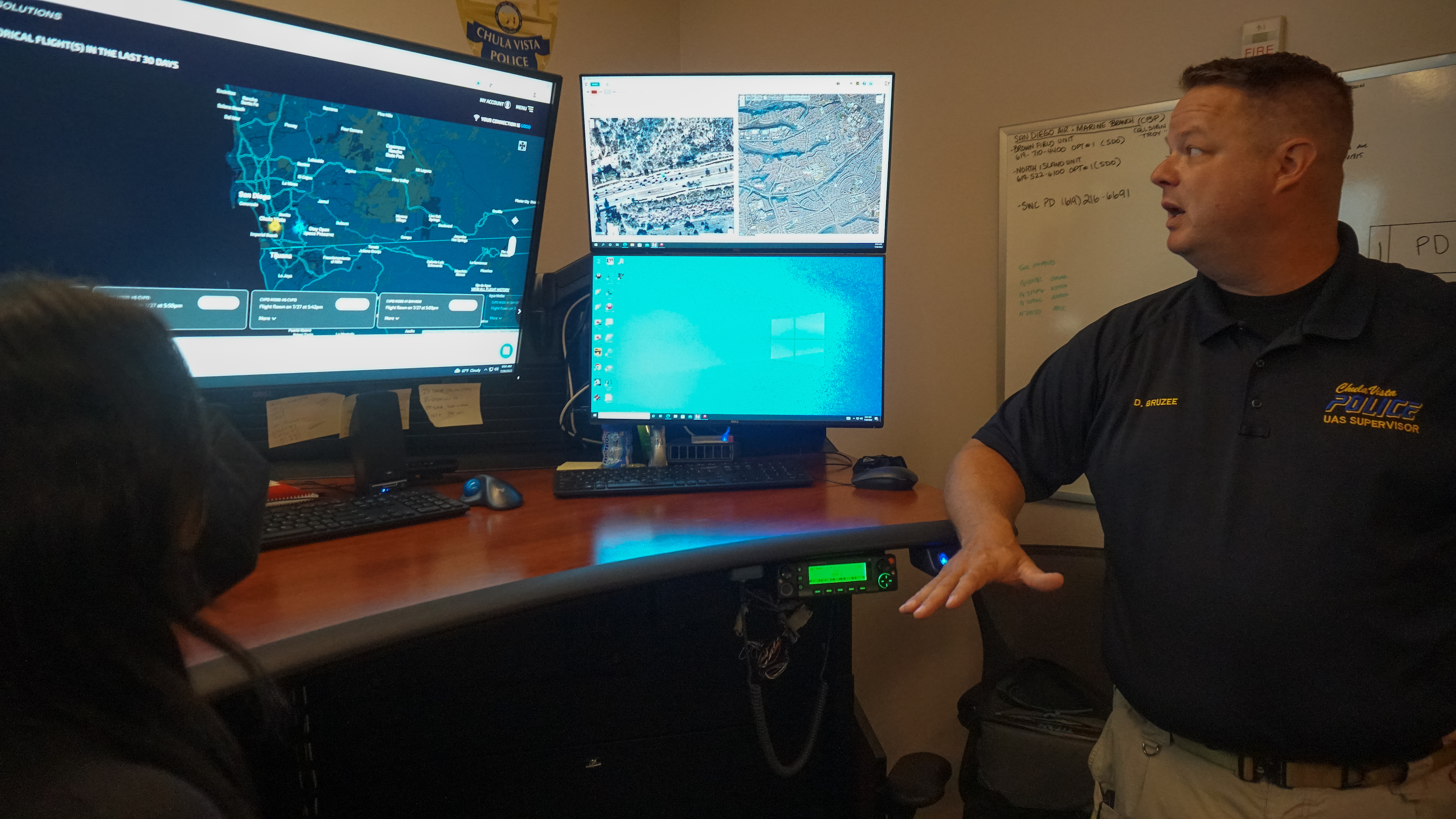by Beryl Lipton, Activist Post:

Law enforcement wants more drones, and we’ll probably see many more of them overhead as police departments seek to implement a popular project justifying the deployment of unmanned aerial vehicles (UAVs): the “drone as first responder” (DFR).
Police DFR programs involve a fleet of drones, which can range in number from four or five to hundreds. In response to 911 calls and other law enforcement calls for service, a camera-equipped drone is launched from a regular base (like the police station roof) to get to the incident first, giving responding officers a view of the scene before they arrive. In theory and in marketing materials, the advance view from the drone will help officers understand the situation more thoroughly before they get there, better preparing them for the scene and assisting them in things such as locating wanted or missing individuals more quickly. Police call this “situational awareness.”
TRUTH LIVES on at https://sgtreport.tv/
In practice, law enforcement’s desire to get “a view of the scene” becomes a justification for over-surveilling neighborhoods that produce more 911 calls and for collecting information on anyone who happens to be in the drone’s path. For example, a drone responding to a vandalism case may capture video footage of everyone it passes along the way. Also, drones are subject to the same mission-creep issues that already plague other police tools designed to record the public; what is pitched as a solution to violent crime can quickly become a tool for policing homelessness or low-level infractions that otherwise wouldn’t merit police resources.
With their birds-eye view, drones can observe individuals in previously private and constitutionally protected spaces, like their backyards, roofs, and even through home windows. And they can capture crowds of people, like protestors and other peaceful gatherers exercising their First Amendment rights. Drones can be equipped with cameras, thermal imaging, microphones, license plate readers, face recognition, mapping technology, cell-site simulators, weapons, and other payloads. Proliferation of these devices enables state surveillance even for routine operations and in response to innocuous calls —situations unrelated to the original concerns of terrorism or violent crime originally used to justify their adoption.
Drones are also increasingly tied into other forms of surveillance. More departments — including those in Las Vegas, Louisville, and New York City — are toying with the idea of dispatching drones in response to ShotSpotter gunshot detection alerts, which are known to send many false positive alerts. This could lead to drone surveillance of communities that happen to have a higher concentration of ShotSpotter microphones or other acoustic gunshot detection technology. Data revealed recently shows that a disproportionate number of these gunshot detection sensors are located in Black communities in the United States. Also, artificial intelligence is also being added to drone data collection; connecting what’s gathered from the sky to what has been gathered on the street and through other methods is a trending part of the police panopticon plan.

A CVPD official explains the DFR program to EFF staff in 2022. Credit: Jason Kelley (EFF)
DFR programs have been growing in popularity since first launched by the Chula Vista Police Department in 2018. Now there are a few dozen departments with known DFR programs among the approximately 1,500 police departments known to have any drone program at all, according to EFF’s Atlas of Surveillance, the most comprehensive dataset of this kind of information. The Federal Aviation Administration (FAA) regulates use of drones and is currently mandated to prepare new regulations for how they can be operated beyond the operator’s line of sight (BVLOS), the kind of long-distance flight that currently requires a special waiver. All the while, police departments and the companies that sell drones are eager to move forward with more DFR initiatives.



